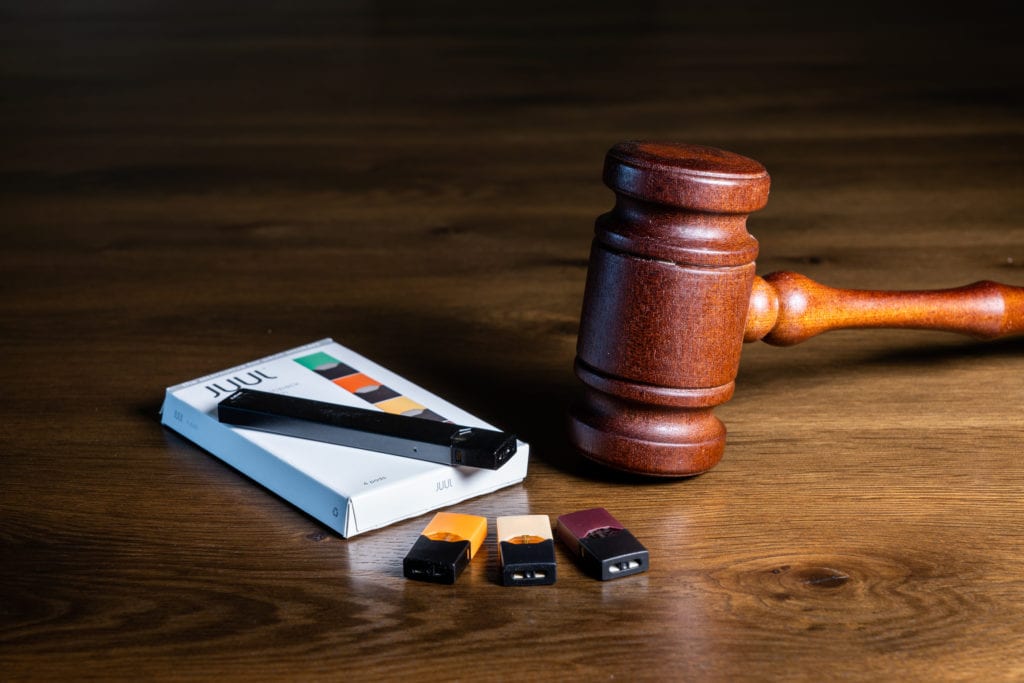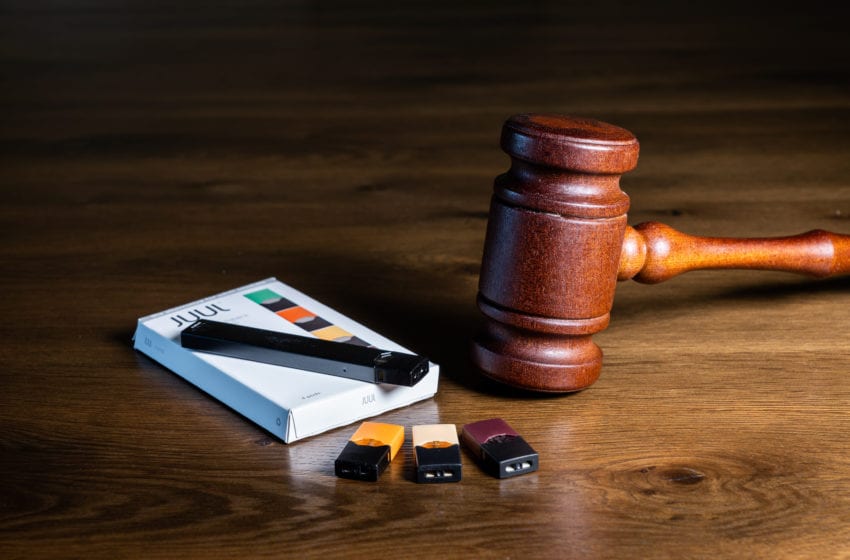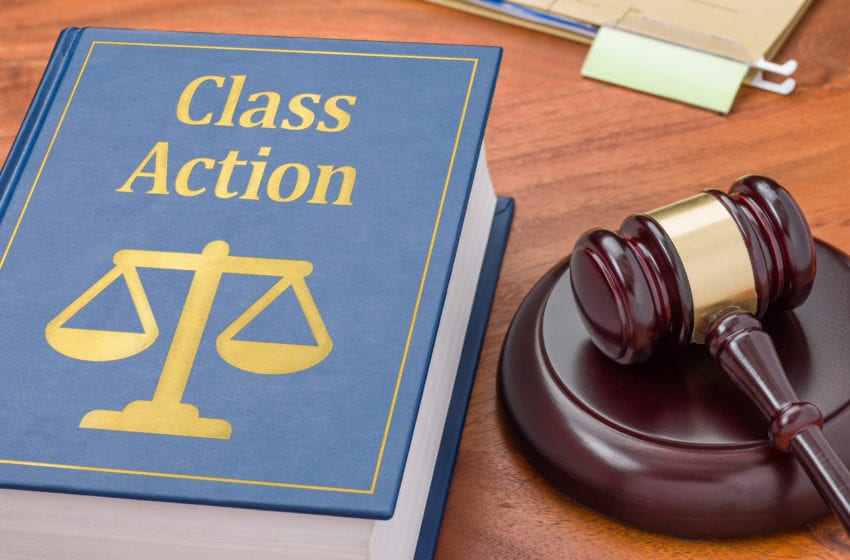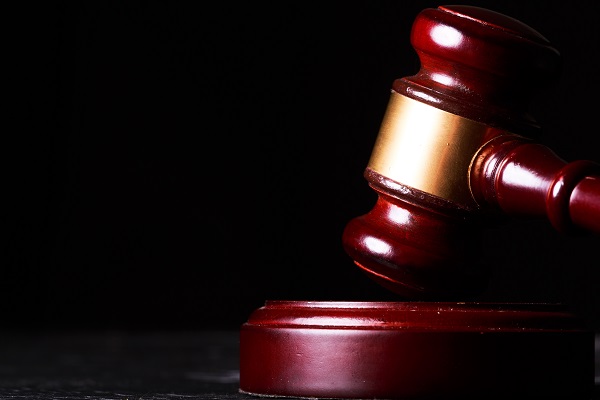State of North Carolina sues Juul Labs for its alleged role in the rise of youth vaping.
North Carolina’s state motto could be changed from “First in Flight” to “First in Fight.” The state is the first in the U.S. to file a lawsuit accusing Juul Labs of targeting teens. Attorney General Josh Stein filed the suit in state court on May 15. It alleges that Juul Labs violated North Carolina’s Unfair and Deceptive Trade Practices Act by distorting the dangers of nicotine in its pod-style products. Stein also contends that Juul Labs designed, marketed and sold its vapor products in a way that attracts youth.
“Juul has long claimed that its e-cigarettes are intended only for adult smokers seeking to transition away from traditional cigarettes, even though it has not sought nor has the FDA [U.S. Food and Drug Administration] granted a designation as an approved smoking cessation device,” the letter states. “But the facts tell a very different—and sobering—story: Teens aged 15 to 17 are far more likely to use Juul than Juul’s supposed target demographic of 25- to 34-year-olds.”
Patricia Kovacevic, a former vapor and tobacco industry attorney and a current vapor industry consultant, says that, in her opinion, the North Carolina attorney general (AG) has yet to substantiate that Juul Labs’ alleged actions are “unfair, deceptive and illegal” under North Carolina law.
“I expect that the AG will amend the complaint and will seek to introduce evidence in support of these claims,” she says. “This is not the first time that an attorney general has challenged the behavior of a manufacturer of tobacco products.”
In the 1990s, attorneys general of more than 40 U.S. states sued tobacco companies to recover the cost of treating patients with smoking-related illnesses. The result was a Master Settlement Agreement (MSA) that, among other stipulations, imposed monetary obligations on the tobacco companies and restrictions on their behavior.
The MSA was finalized in November 1998, originally between what were then the four largest U.S. tobacco companies (Philip Morris, R. J. Reynolds, Brown & Williamson and Lorillard) and the attorneys general of 46 states as well as of the District of Columbia, Puerto Rico and the Virgin Islands. (Mississippi, Minnesota, Florida and Texas settled their lawsuits separately with the major tobacco companies.)
In the agreement, the tobacco companies agreed to limit or cease certain tobacco marketing practices as well as make annual payments to reimburse the states for some of the medical costs associated with smoking-related illnesses. The original participating manufacturers agreed to pay a minimum of $206 billion over the first 25 years of the agreement.
According to the National Association of Attorneys General (NAAG), the MSA has succeeded in its central objective of lowering combustible cigarette use in the U.S., the level of which has declined at a record rate since the MSA was executed. “Youth smoking has declined even more. Cigarette consumption in the United States is currently at its lowest level since 1951 and per capita consumption has not been this low since the 1930s,” the NAAG website states. “This decline is even more impressive because the United States population has more than doubled since 1951.” The NAAG credits the MSA as making important contributions in the lowering of smoking rates, especially in youth.
According to a statement on the American Lung Association (ALA) website, during the signing of the MSA settlement, several states made promises concerning how the MSA money would be used to reduce tobacco use. It goes on to state that states such as Alaska, North Dakota and Oklahoma did “the right thing” and set aside portions of their payouts for programs to reduce tobacco use based on the U.S. Centers for Disease Control and Prevention’s “Best Practices for Comprehensive Tobacco Control Programs.” Most states, however, used the funds improperly.
“The vast majority of states have failed to use the funds for their intended purpose—some have used them to fill budget holes or pay off debts. A couple of states have even in the past used it to benefit the tobacco industry. For instance, South Carolina gave 15 percent of settlement funds to tobacco farmers affected by the drop in prices for their crop, while North Carolina used 75 percent of its settlement funds for tobacco production,” the ALA website states. “Some of those North Carolina funds went to private tobacco producers, covering tobacco curing equipment, a tobacco auction hall, video production for a tobacco museum and plumbing for a tobacco processing plant.”
States were not the only government entities to sue tobacco companies. “There have also been other suits at the federal level,” Kovacevic says. For example, the U.S. v. Philip Morris Inc. case sought recovery of healthcare expenses under the Medical Care Recovery Act and the Medicare Secondary Payment provisions of the Social Security Act, as well as disgorgement under the Racketeer Influenced Corrupt Organization Act from nine companies and two affiliated organizations involved in the cigarette industry.
The North Carolina attorney general claims in the Juul Labs suit that in developing its vapor products, Juul Labs “deliberately designed the flavors, the look and even the chemical composition of the e-cigarettes to appeal to youthful audiences, including minors. Belying its claimed ‘corporate mission’ of helping experienced smokers wean themselves from traditional cigarettes.”
It goes on to allege that Juul Labs “developed dessert- and fruit-like flavors calculated to introduce tobacco in an appealing way to nonsmokers, especially young people. To further ease new smokers into the habit, Juul [Labs] manipulated the chemical content of its e-cigarettes to make the vapor less harsh on the throats of young and inexperienced smokers. Juul [Labs] also created a sleek design for its smoking device that it knew would be attractive to young people, in part because it is easily concealable.”
Juul Labs’ focus on youth is also evident in its marketing, according to the suit. Stein claims that Juul Labs has “consciously chosen social media platforms and marketing channels that are known to attract minors, has used models who look like teenagers or very young adults, and has sought out and paid youth-oriented sponsors.” He also alleges that Juul Labs used social media “influencers” that are popular among teenagers in order to “spread the popularity of Juul’s youth-focused brand identity among the young.”
Stein goes on to allege that “after knowingly creating an e-cigarette product that appeals to minors and knowingly marketing that product in a way that attracts minors, Juul pursued a sales strategy with a strong emphasis on internet-based sales, where the seller does not typically see the customer face-to-face and cannot directly confirm her age.” He accuses Juul Labs of relying on age verification techniques that the company knew were ineffective.
The suit asks that Juul Labs, among other vapor items, refrain from the following actions:
- Facilitate, assist, or enable any individual or entity in offering, selling, delivering or in any manner providing e-cigarette products to minors within this state
- Offer, sell, deliver or in any manner provide e-cigarette products within this state in any flavors other than tobacco or menthol through online sales
- Facilitate, assist, or enable any individual or entity in offering, selling, delivering or in any manner providing e-cigarette products within this state in any flavors other than tobacco or menthol through online sales
- Engage in or participate in any marketing or advertising activities within this state, including on social media accessed within this state, involving e-cigarette products that are intended to or are known to be likely to appeal to minors, nor shall Juul Labs retain, facilitate, assist, enable, or encourage any other person or entity to engage or participate in such marketing or advertising activities within this state
- Accordingly, Juul Labs, without limitation, shall not: advertise outdoors (including window advertisement visible from the street or sidewalk) within 1,000 feet of schools and playgrounds in North Carolina, or sponsor sports, entertainment or charity events held in North Carolina
Stein also asked that the e-cigarette manufacturer hand over to the state a confidential database containing “all customer-related information, including but not limited to names, addresses, email addresses, telephone numbers and any other information in Juul Labs’ possession regarding any individual consumer that is under age 18 or that Juul is unable to confirm is at least 18 years of age.”
He then asks that Juul Labs delete “all such information in its possession, including but not limited to all account information on Juul’s website and inclusion of such individuals on Juul’s email marketing lists” within 10 days of the state receiving the list.
Victory in the case is far from certain for North Carolina, according to Kovacevic. “It will be interesting to follow the North Carolina case to understand, among other things, how will the attorney general quantify the alleged harm from which relief is sought,” she says.










